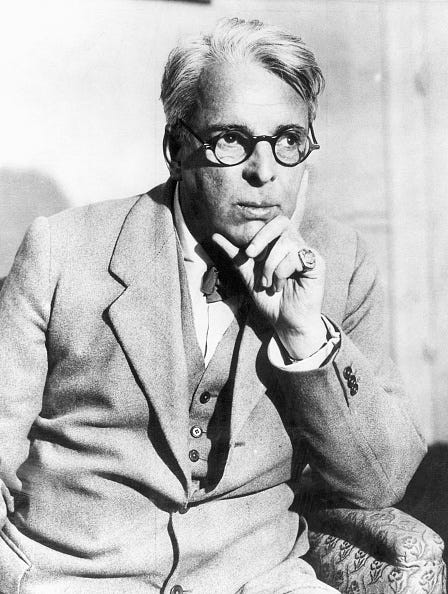“Mercy” from The Merchant of Venice by William Shakespeare.
ORIGINAL TEXT AND AUDIO - 2017
Martin Luther married Katharina von Bora on this date in 1525. Their marriage was scandalous at that time, because Luther was a former monk, and his betrothed was a former nun. They met when Katharina — along with 11 of her fellow nuns — hid in a wagon to escape their convent; they ended up in Wittenberg, under Luther’s protection. Katharina was vivacious and intelligent, and soon had her share of suitors, but she declared that she would only marry Luther or his friend Nikolaus von Amsdorf. Many people — including Luther himself — were worried that it would reflect badly on the fledgling Protestant Reformation. In the end, Luther decided that there was “a battery of reason in favor of his proposal: his marriage would please his father, rile the pope, cause the angels to laugh and the devils to weep.”
His marriage to “dear Katie,” as he called her, was a happy one. They lived in the Black Cloister, the monastery where Luther had formerly served as a monk. They had six children, and Katharina ran the household while Luther taught and wrote. She controlled the family finances, grew most of the food, and brewed her own beer. She was an excellent cook, and the Luther dinner table became famous for its delicious food and stimulating conversation. Luther sought his wife’s advice on many matters, and she frequently dealt with publishers on his behalf, since he had no head for business.
Martin Luther died in 1546. Not long afterward, Katharina wrote to her sister: “I know that you take pity on me and my poor children. For who could not be deeply grieved and saddened over the loss of such a dear and precious man as my husband has been. He gave so much of himself in service not only to one town or to one country, but to the whole world. Yes, my sorrow is so deep that no words can express my heartbreak, and it is humanly impossible to understand what state of mind and spirit I am in … I can neither eat nor drink, not even sleep … God knows that when I think of having lost him, I can neither talk nor write in all my suffering.”
Today is the birthday of Irish poet William Butler Yeats, born in Sandymount, Ireland (1865), and considered one of the greatest poets in the history of the English language. Some of his most famous poems are “Easter, 1916,” “Sailing to Byzantium,” and “The Lake Isle of Innisfree.” He won the Nobel Prize in literature in 1923.
Yeats was committed to writing about Ireland and national identity. He once said, “I should never go for the scenery of a poem to any country but my own, and I think I shall hold that conviction to the end.” He was a fervent Irish nationalist and even served six years in the Senate, the Dáil Éireann. About Ireland, Yeats said, “We are a nation of believers.”
As a child, he was homeschooled and then sent to art school to follow in the footsteps of his father, a famous portrait painter. One of his school reports said, “Perhaps better in Latin than in any other subject. Very poor in spelling.” Undeterred, he quit art school and devoted himself to poetry. His collections include In the Seven Woods (1903), Responsibilities (1904), and The Green Helmet and Other Poems (1910).
W.B. Yeats became quite famous in his lifetime. As a young poet, he went to visit fellow poet Paul Verlaine in Paris and later, poet Ezra Pound became his secretary for a time when they shared a cottage for several months in Sussex. Yeats cut a dashing, if unkempt figure about London at one time, with one friend remarking, “Yeats was striding to and fro at the back of the dress circle, a long black cloak drooping from his shoulders, a soft black sombrero on his head, voluminous black silk tie flowing from his collar, loose black trousers dragging untidily over his long, heavy feet.”
Yeats met the great, unrequited love of his life, Maud Gonne, in London. She was tall, beautiful, devoted to Irish nationalism, and didn’t return his ardor. He wrote several plays for her, like The Countess Kathleen (1892) and Cathleen ni Houlihan (1902), in which Gonne played the starring role. Yeats proposed to her three times over several decades and each time she refused. The last time she rejected him, he proposed to her daughter, who said no, as well. When Yeats met Maud Gonne, he famously said, “The troubles of my life began.” In the end, at 52, he married Georgie Hyde-Lees and had two children. They lived in a tower on the outermost edge of Ireland and practiced spiritualism and automatic writing. Yeats had many lovers over the years, but Georgie forgave him.
It’s the birthday of first-generation American author and immigration rights activist Mary Antin, born in Russia (1881). She is best known for her autobiography The Promised Land (1912), which detailed her new life in Boston after leaving czarist Russia with her family.
In Russia, opportunities for Antin and her family had been few. They were Jewish, and like many European countries at the time, the larger Russian culture was anti-Semitic. Mary was forbidden from attending school in Russia because of her heritage.
In Boston, Antin’s family still lived with other poor, Jewish immigrants in a slum neighborhood. But she was able to attend grammar school in America, and there she stood out. She learned English phenomenally well, and through her success became a symbol of the ways that immigrants could benefit and assimilate into American society. “I thought it a miracle,” she wrote looking back later in life, “that I, Mashke, the granddaughter of Raphael the Russian, born to a humble destiny, should be at home in an American metropolis, be free to fashion my own life, and should dream my dreams in English phrases.”
As an adult, Antin became a major Progressive Party supporter. She campaigned for the Allies in World War I, and when her geologist husband came out in favor of the Germans, she separated from him and suffered a physical breakdown.
Mary died of cancer in 1949, at the age of 67. She is one of those commemorated on the Boston Women’s Heritage Trail.
Today is the birthday of English novelist and diarist Frances (Fanny) Burney (1752). She was born in King’s Lynn, Norfolk, the daughter of a music historian. She didn’t learn to read and write until she was 10 years old, but once she did learn, she wasted no time in putting her skills to work writing plays, poems, and songs. Her mother died when she was 15, and her father remarried that same year; her stepmother didn’t think writing was a suitable hobby for young ladies, and Fanny burned all of her early work.
When she was 16, she began keeping a diary, a practice she maintained for more than 70 years. She was a keen observer of society and manners, and her journals recount visits by such luminaries as Dr. Samuel Johnson, James Boswell, David Garrick, and Sir Joshua Reynolds — all friends of her father. She also described the Battle of Waterloo, the madness of King George III, and her own mastectomy, performed without any anesthesia beyond a single glass of wine.
Her first published novel, Evelina, or the History of a Young Lady’s Entrance into the World (1778), was a comedy of manners, informed in large part by her own observations and experience as a young woman in society. She published it anonymously and disguised her handwriting, afraid that publishers would recognize her hand from her work as her father’s literary assistant. The novel was a great success, and she followed it with a second — Cecilia, or Memoirs of an Heiress (1782) — which would inspire Jane Austen’s Pride and Prejudice (1813). Burney succeeded in making novel-writing an acceptable enterprise for women, and she paved the way for many 19th-century social satires.
Burney went to the court of King George III and Queen Charlotte in 1786, and she served as “Second Keeper of the Robes” for five years. She was unhappy in her post, since she was too busy to write novels, though she kept up with her diaries. When she was released from service, she married French expatriate general Alexandre d’Arblay, and proceeds from her third novel, Camilla, or a Picture of Youth (1796), paid for a house for the newlyweds. In 1802, they took their young son to France for a brief stay that ended up lasting 10 years, due to a renewal of the Napoleonic Wars. She recorded it all in her diaries, and her account of the Battle of Waterloo may have provided Thackeray with material for Vanity Fair.
She wrote one more novel, The Wanderer (1814), and several plays, only one of which was staged in her lifetime. And near the end of her life, she dedicated herself to publishing her father’s memoirs and to organizing her sizable collection of diaries and personal papers. She died in 1840, at the age of 88.






As it is the anniversary of the birth of W.B. Yeats, you may be interested to learn that the cello I have performed on for the last several years was purchased for Yeats’ granddaughter Sile Yeats, and came from an estate sale organized by her sister, Caitriona Yeats, a harpist formerly with the Milwaukee Symphony and the Danish National Symphony. - Jeffrey Solow
Yeats held a life-long hatred towards Wilfred Owens. Yeats isn't worth discussing.